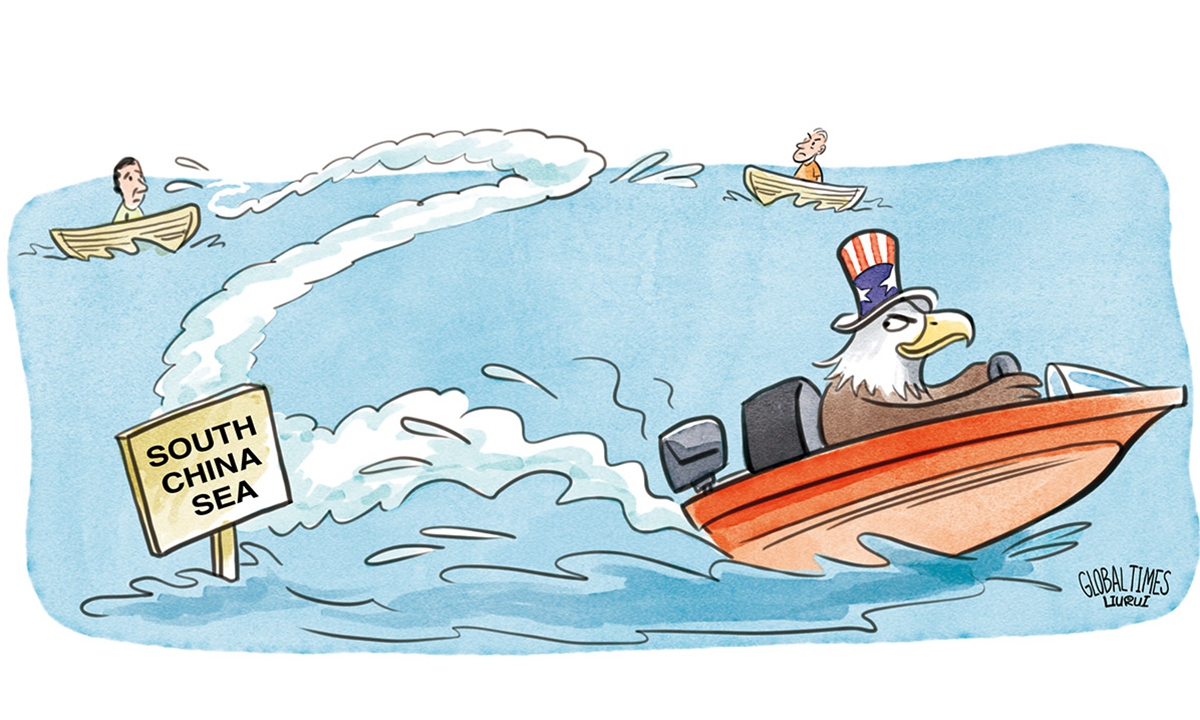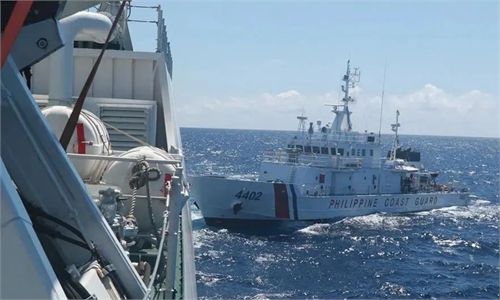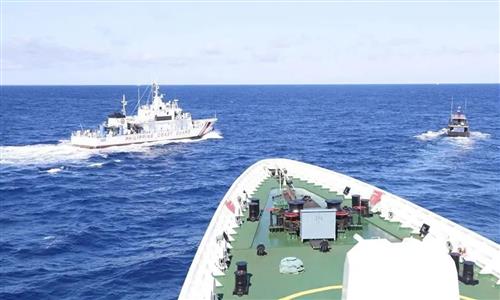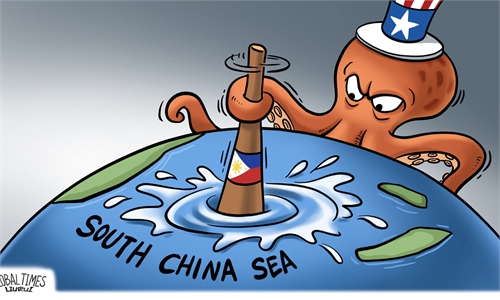
Illustration: Liu Rui/GT
The navies of the US, Japan and Australia are planning a joint navy drill in the South China Sea off the western Philippines this week. It was reported that the Philippine forces have "canceled" their previous plan of participation in the drills due to military logistical limitations. However, commanders from the four countries may gather in Manila to send a "strong message."In early August, tensions escalated in the South China Sea due to a dispute between China and the Philippines over Philippines' illegal transportation of construction supplies to a "grounded" warship at China's Ren'ai Jiao (also known as Ren'ai Reef), in China's Nansha Qundao (Nansha Islands). This drill is thus widely interpreted as a specific response by the US and its allies to China's actions to safeguard its sovereignty and maritime rights in the South China Sea.
The four countries have been planning this drill for months, and the convergence with the incident at Ren'ai Reef is no coincidence. Regardless of the China-Philippines dispute around Ren'ai Reef, the trilateral naval drill in the South China Sea would still have occurred.
Behind the trilateral naval drill lies the power game, or the "game of thrones" in the South China Sea. Undoubtedly, upholding hegemony is the US' greatest interest in the South China Sea. This has been a core objective from Barack Obama administration's "rebalance to Asia" to the two versions of Indo-Pacific Strategy under Donald Trump and Joe Biden's administrations. This hegemony includes maintaining a significant military advantage, controlling the rules of the region, and leading the security architecture in the region. Joint drill serves as a means for the US to gather allies and partners in the South China Sea and to demonstrate strength to its competitors. Particularly, the institutionalization and expansion of the trilateral drill highlight the US' attempt to boost its military cooperation with regional countries and construct a NATO in the Indo-Pacific.
Japan pursues influence over security matters, agenda-setting and rule-making in the South China Sea region. Japan aims to compete with China for power status across the East China Sea, South China Sea and the South Pacific.
Australia adheres to a security strategy centered on US hegemony, while simultaneously pursuing a position as a middle power with regional dominance in the South Pacific. In recent years, the shift in Australia's national security strategy has been influenced by the US Indo-Pacific Strategy, moving its focus gradually from the southern to the northern regions, and viewing the South China Sea as a vital area concerning maritime security and international stability.
The fact that all three countries view the South China Sea as a theater for pursuing their distinct power interests reflects the predicament currently faced by the evolving security situation in the South China Sea. The trilateral drill sends the wrong signals to the Philippines and other claimant countries that are already eager to assert their interests. These claimant countries might be emboldened by the joint actions of the three countries to take more reckless unilateral actions in areas such as island construction and oil and gas exploration. In addition, it also provides an opportunity for other external major powers such as India and certain European countries to intervene militarily in the South China Sea. Over time, it's almost inevitable that the South China Sea will become a focal point of global geopolitical power struggles.
The trilateral naval drills not only challenge the existing security structures in the South China Sea region but also present new challenges to the negotiations on the Code of Conduct (COC) in the South China Sea.
The "game of thrones" is being imposed by external nations upon countries in the South China Sea region, while entangled neighboring countries can only be victims in this scenario. Such "offshore" power maneuvers clash with the overarching trends of the evolving international political system. China and ASEAN members should, based on their shared long-term national interests in the region, stay on the right track of historical development, and collaborate to curb the escalating power competition in the South China Sea. Steadily advancing COC negotiations will help align excessive territorial claims, power aspirations and national sentiments within the framework of effective regional rules, effectively isolating them from the " game of thrones " of external nations.
The author is the director of the world navy research center at the National Institute for South China Sea Studies. opinion@globaltimes.com.cn



